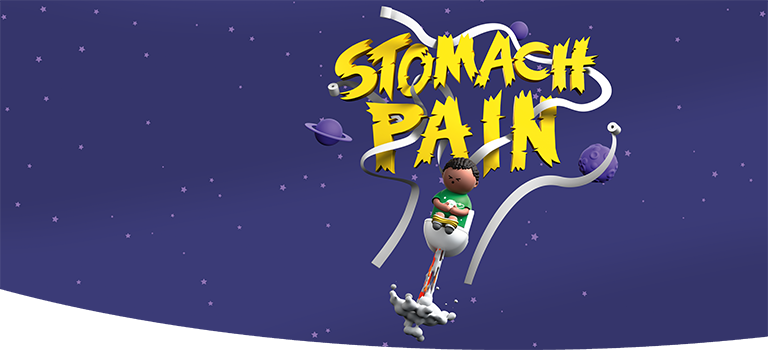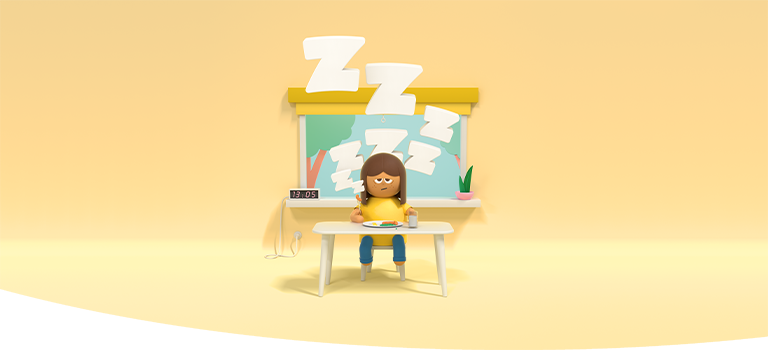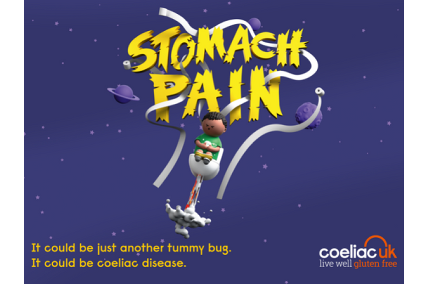Coeliac disease in children
Coeliac disease is a common autoimmune condition in children, estimated to affect 1 in 100 in the UK. But most children with coeliac disease aren’t yet diagnosed. It’s easy to mistake for other childhood conditions, with symptoms like slow growth, stomach pain, sickness, bloating, extreme tiredness. If that sounds like your child, read on for more information and find out what to do next.
What is coeliac disease and what are the symptoms?
Coeliac disease is a common, autoimmune condition that can occur at any age and is treated with a lifelong gluten free diet. When someone with coeliac disease eats gluten (a protein found in wheat, barley and rye), their immune system attacks itself and causes damage to the gut. If left undiagnosed and untreated long term, the disease can cause complications like growth problems, delayed puberty, tooth enamel defects, iron deficiency anaemia, chronic fatigue and, over time, osteoporosis. The good news is, these potential complications can be avoided with early diagnosis and treatment.
There is no cure. The only treatment is a strict gluten free diet for life – but gluten needs to stay in your child’s diet until they’re formally diagnosed with coeliac disease by a healthcare professional.
If your child is experiencing any of the following symptoms on an ongoing basis, they should be offered a test for coeliac disease:
- bloated tummy, stomach pain, diarrhoea, constipation and other gut symptoms
- sickness
- extreme or ongoing tiredness
- not gaining weight or growing slowly (faltering growth).
Other symptoms, such as severe mouth ulcers, having low levels of nutrients like iron, vitamin B12 or folate, can also be a sign of coeliac disease.
The earlier you find out they have coeliac disease, the sooner they can get on the road to recovery. Also, there are genes involved in coeliac disease– your chances of having it increase to 1 in 10 if a close relative is diagnosed. Because of this increased risk, anyone with a close family member diagnosed coeliac disease should be tested themselves, even if they have no symptoms.
The first step is to take our online self-assessment to check your child’s symptoms and find out if they should be tested. Then bring the results – which you can print out or keep on your phone – to your GP and discuss getting tested.
Remember, do not remove gluten from their diet until they are diagnosed by a healthcare professional.
How are children diagnosed with coeliac disease?
Some children can be diagnosed based on two blood tests, which measure antibodies produced in response to eating gluten. Your GP may arrange the initial blood test at the local doctors surgery or at the hospital. If positive, the GP should then refer your child to a specialist for further testing. A diagnosis of coeliac disease should always be made by either a paediatrician or a paediatric gastroenterologist.
In some cases, a biopsy may be required. This looks at the gut to confirm if there is damage caused by coeliac disease. It requires an endoscopy and takes place in hospital.
Coeliac UK is here for you throughout the diagnosis process – check our FAQs for more information, or give our Helpline a call from 10am-4pm on weekdays, on 0333 332 2033.
What happens after diagnosis?
Once your child is diagnosed, it’s recommended that they receive ongoing monitoring by an experienced paediatric dietitian and paediatric gastroenterologist. Children should be followed up six to 12 months after diagnosis and then with a yearly check up after this. The check up may include a blood test to check how they’re getting on, but this isn’t always necessary.
Children should also have their height and weight checked to monitor their growth and development.
However, if your child’s symptoms have not improved or have got worse since following the gluten free diet, speak to your healthcare team.
Get support from the experts
Managing a lifelong autoimmune condition and adapting to your child’s new gluten free diet can be overwhelming. We’re here to help with over 50 years of expertise.
We’ve got specialist dietetic advice and the tools you need to make living gluten free easy. From information packs for schools, to tools that build your child’s confidence speaking up on their condition. Explore our Kids, teens and young adults information to find out more, or give our Helpline a call on 0333 332 2033 for friendly advice to help you through. And don’t forget to join Coeliac UK for access to award winning apps, and even more tailored support.
Find out more
Check out the downloads we have available below:
- Fact sheet on supporting a child with coeliac disease
- Our joint manifesto and infographic, produced with the Association of European Coeliac Societies (AOECS) and the European Society for Paediatric Gastroenterology Hepatology and Nutrition (ESPGHAN)
- The Belly Bunch leaflet, for children up to age six.







